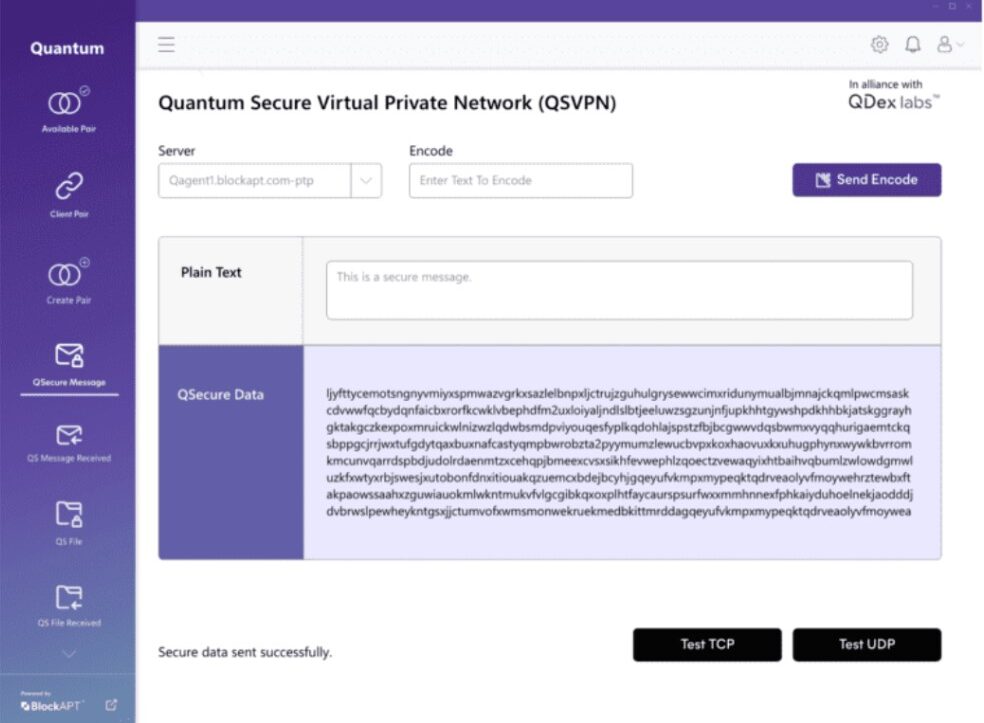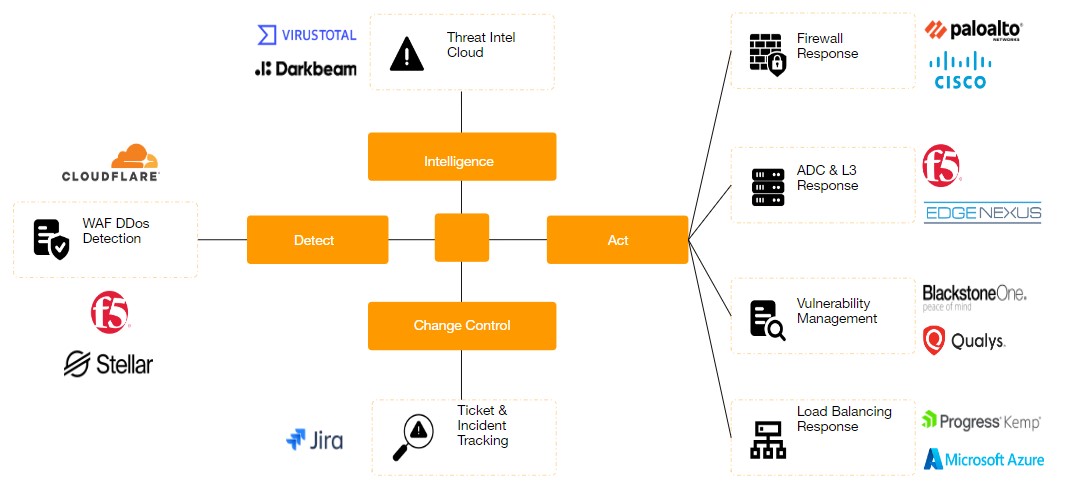Quantum VPN
Introducing Quantum Secure Virtual Private Network
Our platform protects your valuable data throughout its entire lifecycle. It establishes a resilient defence against quantum adversaries from data at rest to data in transit, ensuring confidentiality, integrity, and availability of critical information assets.
It is designed to improve latency, bandwidth, throughput, and energy consumption without compromising the speed or security of your network and applications.
● Speed ● Security ● Simplicity ● Sustainibility

Quantum VPN Benefits
Quantum solution utilising award winning, FIPS 140-3 conformance tested MicroToken Exchange (MTE) technology, is designed to future-proof the defence for your organisation.

Uncompromising Security

Regulatory Compliance

Scalable Performance

Resilience and Continuity

Rapid Deployment

Future-Proof Infrastructure
Quantum VPN Features

Quantum Resistant Security
Utilises MTE® FIPS 140-3 which is conformance tested technology that is resistant to quantum attacks.

Scalable Performance
Seamless connectivity, improved speed, minimal lag. robust scalability and security resilience.

Robust Compliance
Adheres to security standards, protecting critical systems and data integrity.

Resilience and Continuity
A layered defence-in-depth & zero trust network access approach for data-in-transit and data-at-rest.

Wide Applications
Applicable across endpoints, transactions, website, IoT, messaging, mobile, VPNs, etc.
Use Case: Cybersecurity Application

For the uninitiated, quantum computing is a yet-to-be fully realised technology with many potential benefits. It also threatens to break many of the most common forms of cryptography-based computer security with its unique ability to solve time-intensive mathematics problems almost instantly in relative terms.
A conventional computer processes information by encoding it into 0s and 1s leveraging the inherent nature of electrical charge (positive or negative). If we have a sequence of thirty 0s and 1s, it has about one billion of possible values. However, a classical computer can only be in one of these one billion states at the same time. A quantum computer can be in a quantum combination of all of those states, called superposition leveraging the inherent nature of quantum particles such as spin, location, or even momentum. This allows it to perform one billion or more copies of a computation at the same time. In a way, this is similar to a parallel computer with one billion processors performing different computations at the same time—with one crucial difference. For a parallel computer, we need to have one billion different processors. In a quantum computer, all one billion computations will be running on the same hardware. This is known as quantum parallelism.
So in this way a quantum computer bit (qubit) processes the equivalent of 2^n classical bits. As a simple illustration 3 qubits strung together (via quantum entanglement) can do 8 computations simultaneously I.e. 000, 001, 010, 100, 011, 101, 110, 111 all at the same time.
The relationship in terms of how much more powerful a quantum computer is versus classical computing is exponential. I.e. the longer the string of qubits, the power increases exponentially. For context if 300 qubits were strung together this would be enough to map the entire universe (2^300 classical bits).
In 2015, Google and NASA reported that their new 1097-qubit D-Wave quantum computer had solved an optimization problem in a few seconds. That’s 100 million times faster than a regular computer chip. They claimed that a problem their D-Wave 2X machine processed inside one second would take a classical computer 10,000 years to solve.
Note of clarification – not all 1097 qubits were strung together
Also in late 2019, Google claimed that it had managed to solve a problem that would take 10,000 years for the world’s fastest supercomputer within just 200s using a quantum computer.
In truth Western cryptography is all hackable provided a classical computer has enough time (essentially solving a mathematical problem) and that if it might take 10 years to work out the problem for example, then the advent of quantum computing essentially renders classical cryptography useless.
It is however challenging to engineer long strings of qubits as it is very sensitive to noise and may only exist for short periods of time however the technology advances every year. There are however concerns that some hacks involve securing access to encrypted data and waiting until quantum computing technology advances such that those encrypted data can be hacked in future with ever more powerful quantum computers.
While today’s quantum computers aren’t yet powerful enough to be a threat, future iterations could quickly create a security nightmare. Most private communications, financial transactions and other security-sensitive applications would be defenceless.
The issue is being taken particularly seriously by forward thinking governments such as that of the USA, which in fact passed legislation.
Public Law No: 117-260 (12/21/2022)
Quantum Computing Cybersecurity Preparedness Act
This law requires federal agencies to “migrate systems to post-quantum cryptography, which is resilient against attacks from quantum computers and standard computers.”
HAS Digital is proud to be in a very small minority of firms worldwide able to solve this problem with its Quantum Secure VPN technology.
Secure Your Business with HAS Digital
Ensure your company's safety and growth with our expert cyber security & business consulting services.


